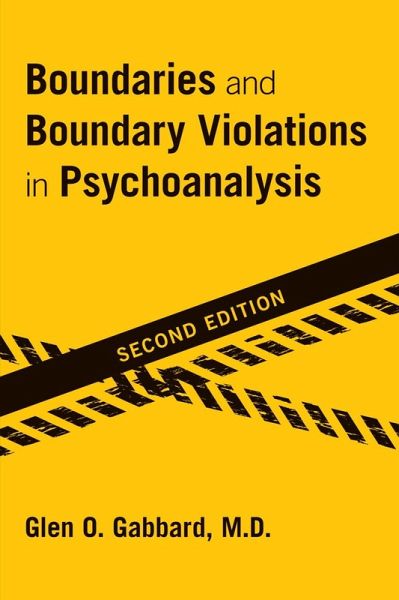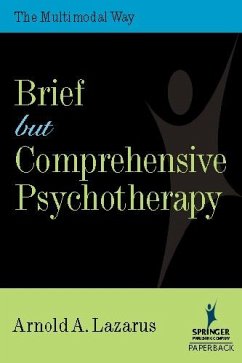
Boundaries and Boundary Violations in Psychoanalysis (eBook, ePUB)

PAYBACK Punkte
21 °P sammeln!
Boundaries and Boundary Violations in Psychoanalysis is a state-of-the-art overview of the problem of boundary violations in psychoanalysis and psychotherapy. This new edition is a major overhaul of the seminal first edition, published 20 years ago, and addresses topics with which every psychoanalyst, therapist, resident, and training director should be conversant. Penned by one of the foremost experts on psychoanalysis, the book is both broad and thorough in scope, presenting models of prevention to help readers avoid boundary problems in their practices and providing expert advice on institu...
Boundaries and Boundary Violations in Psychoanalysis is a state-of-the-art overview of the problem of boundary violations in psychoanalysis and psychotherapy. This new edition is a major overhaul of the seminal first edition, published 20 years ago, and addresses topics with which every psychoanalyst, therapist, resident, and training director should be conversant. Penned by one of the foremost experts on psychoanalysis, the book is both broad and thorough in scope, presenting models of prevention to help readers avoid boundary problems in their practices and providing expert advice on institutional responses to complaints and rumors. In addition, the impact of boundary violations on patients is examined, a long-neglected and overdue exploration that encourages increased institutional responsiveness to victims' needs.
The book was designed to inform and forearm, with chapters and features that psychoanalysts and therapists will find eminently useful: ¿ The fear that the patient may commit suicide and how that fear may play a role in the development of boundary violations warrants a separate chapter therapists will find illuminating.¿ Boundaries in cyberspace, a topic only recently pertinent, is explored in depth in a chapter that provides guidance on how the therapeutic frame has been broadened by the impact of texting, email, googling, and social media.¿ Detailed guidelines on how to handle complaints are included, information that will prepare organizations to respond both strategically and compassionately to these complex situations.¿ Examples and cases are based on those the author has encountered over 30 years of evaluating, treating, and consulting and reflect the diversity of clinical practice, involving both male and female violators as well as victims and their families.¿ Boundary violations do not always include a sexual relationship, and the types of boundary violations discussed include nonsexual, supervisory, and post-termination.
Every chapter has been updated to include new data and current understanding, addressing the most critically important topics in a rigorous, yet humane manner. Boundaries and Boundary Violations in Psychoanalysis is the most authoritative resource on the subject, and will help the reader manage boundaries across a variety of therapeutic contexts.
The book was designed to inform and forearm, with chapters and features that psychoanalysts and therapists will find eminently useful: ¿ The fear that the patient may commit suicide and how that fear may play a role in the development of boundary violations warrants a separate chapter therapists will find illuminating.¿ Boundaries in cyberspace, a topic only recently pertinent, is explored in depth in a chapter that provides guidance on how the therapeutic frame has been broadened by the impact of texting, email, googling, and social media.¿ Detailed guidelines on how to handle complaints are included, information that will prepare organizations to respond both strategically and compassionately to these complex situations.¿ Examples and cases are based on those the author has encountered over 30 years of evaluating, treating, and consulting and reflect the diversity of clinical practice, involving both male and female violators as well as victims and their families.¿ Boundary violations do not always include a sexual relationship, and the types of boundary violations discussed include nonsexual, supervisory, and post-termination.
Every chapter has been updated to include new data and current understanding, addressing the most critically important topics in a rigorous, yet humane manner. Boundaries and Boundary Violations in Psychoanalysis is the most authoritative resource on the subject, and will help the reader manage boundaries across a variety of therapeutic contexts.
Dieser Download kann aus rechtlichen Gründen nur mit Rechnungsadresse in A, D ausgeliefert werden.













